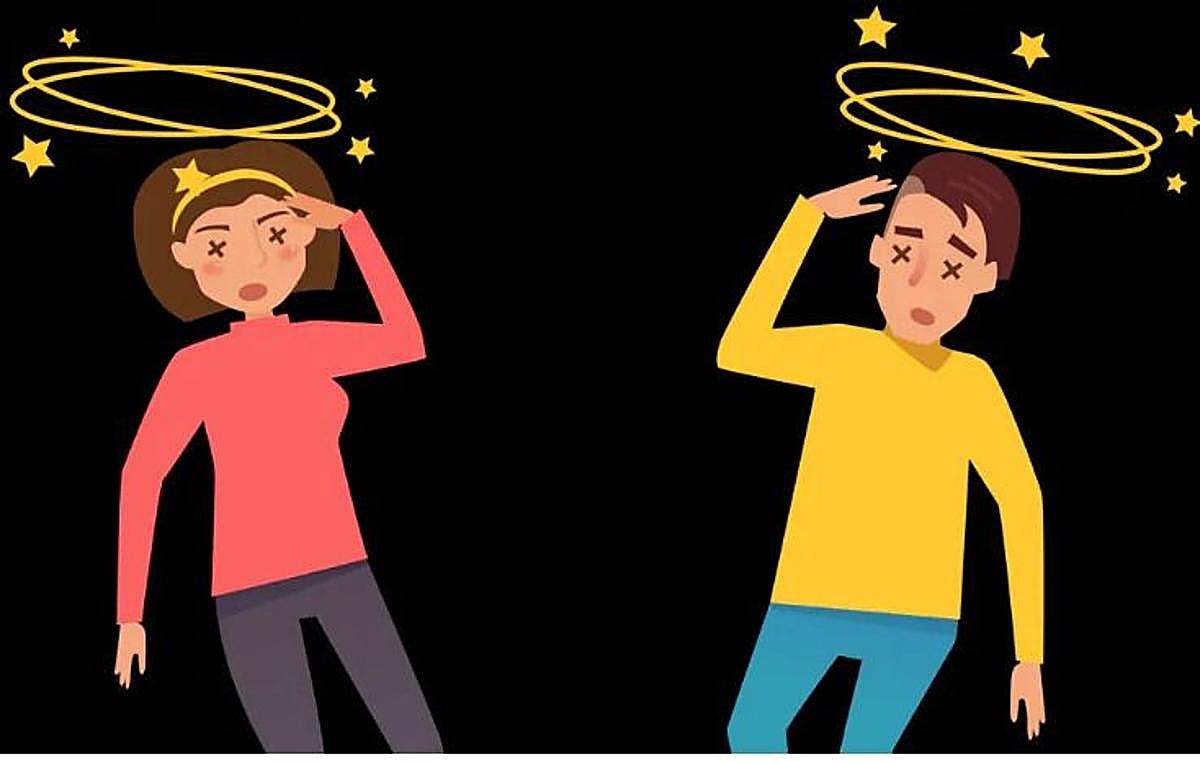Feeling dizzy, in a cold sweat... do you know when you’re about to faint?
The causes of fainting are not usually dangerous, but be careful not to fall if you can help it
Carmen Barreiro
Madrid
Friday, 1 November 2024, 12:19
Mercedes has been fainting since she was a child. An upsetting scene, the sight of blood, a very hot afternoon, not eating anything for hours and... boom! She keels over.
“Now I have it more or less under control and it’s rare that I lose consciousness. As soon as I notice the signs, I know what I have to do to avoid ending up on the floor,” she explains with a look of relief on her face. Still, the first time it happened to her she was only five years old.
“We were eating and my mother began choking. It wasn’t anything serious, but the scene shocked me so much that I collapsed,” she recalls. They rushed her to the emergency room where they ran tests to see if it was a heart problem... but nothing to do with that. She had simply passed out from the shock.
Now 44, Mercedes still suffers from the occasional fainting spell, but she has learned to live with it.
“In most cases, the problem is not so much the fainting as the blow you can get when you fall suddenly,” warn neurologists.
It is estimated that approximately one in three people will pass out at some point in their lives. But why does it happen? What are the causes? Above all, when should we be concerned? Here are some answers to the main questions.
What’s going on in our body for it to end up on the floor?
Before we get into details, we need to differentiate between fainting and lipothymia. In the former case the patient loses consciousness, even if only for a few seconds, while in the latter the person may feel dazed, dizzy and even weak, but does not lose consciousness at any point.
Fainting (syncope, in medical terms) is basically caused by cerebral hypoperfusion. In other words, blood pressure suddenly drops and the brain stops receiving enough oxygen to function ‘normally’, so we lose consciousness.
“It is a sudden episode (it occurs out of the blue), transitory (lasts a short time) and self-limiting (resolves on its own), which manifests itself fundamentally with the loss of consciousness and muscle tone,” describes Dr Fidel Fuentes, head of the emergency department for Igualatorio Médico Quirúrgico (IMQ), a private health provider in Spain.
Something frightening, the sight of blood, too much heat, menstruation... there are many causes and almost always benign.
To understand why we can pass out, it is important to understand how our body’s wiring works. Neurologist Dr Esteban explains: “Blood pressure and heart rate are automatically coupled like a Swiss watch, so that when we make a minimal movement, such as getting up from the sofa, a part of the nervous system called the sympathetic nervous system is activated, which makes blood pressure and heart rate rise a little to get us going. However, when we lie down, exactly the opposite happens: the parasympathetic system is activated, which lowers heart rate, blood pressure eases up and our movements slow down. What happens is that there are times when this coupling takes a few seconds to get into gear and the body suffers. A typical example is when we get out of bed too quickly and feel dizzy.”
So this ‘decoupling’ that neurologists refer to can occur for various reasons, most of which are benign in origin and resolve on their own.
Generally speaking, there are two types of fainting. On the one hand, there are syncopes that are not related to heart problems and those caused by heart disease. On the other hand, those that are heart-related, although less common, “must be treated with more care because they are dangerous,” says Dr Fuentes.
In this first group of fainting types are the so-called vasovagal syncopes, which are the most common, especially among women. The causes of these fainting spells are usually related to low blood pressure, episodes of stress or panic as with a fright, fear of blood, pain and even coughing too hard. There are also so-called situational or postural syncopes related to diseases such as diabetes, sudden changes in movement, heat exhaustion or alcohol poisoning. In any case, this type of fainting spell usually has a good prognosis and is over and done with in just a few minutes.
Be ready to squat down and always carry licorice in your pocket
When you feel you’re about to collapse, above all it’s essential to avoid a bad fall.
“If you notice that you’re turning pale, sweating, or feeling dizzy, the most effective way to quickly raise your blood pressure is to squat down. The body reacts like when you uncork a bottle of champagne,” explains neurologist Juan Carlos Esteban.
Clenching your fists or crossing your legs can also help with recovery.
“People with low blood pressure might carry liquorice, olives or nuts in their pockets to help in moments of weakness,” adds the head of A&E at IMQ.
And if I witness someone faint?
“Check they’re breathing, loosen their clothing, and lift their legs. Don’t let them sit up too quickly,” he advises.
“In these cases, you have to be more careful about falling,” the experts agree. If the faint occurs suddenly and for no apparent reason... watch out!
“The fainting spells that most concern us as neurologists and cardiologists are the sudden ones, those that give no warning. Because the fainting spells that give warnings with dizziness, blurred vision or sweating are usually related to a drop in blood pressure or to factors that are not of concern, but the ones that occur suddenly and without an apparent cause, be careful! These have to be thoroughly examined because they can hide a heart problem or even an episode of epileptic seizures,” warns Dr Juan Carlos Esteban.Syncope
